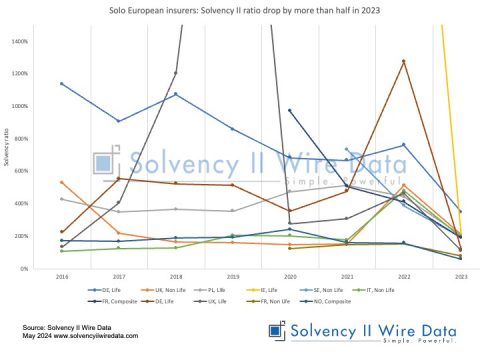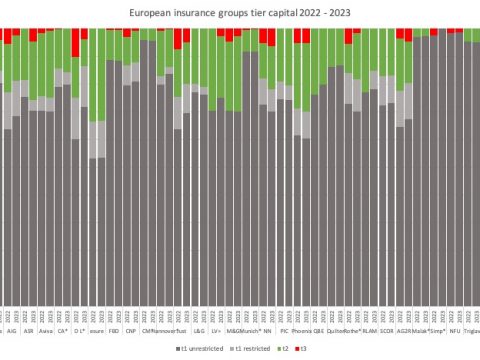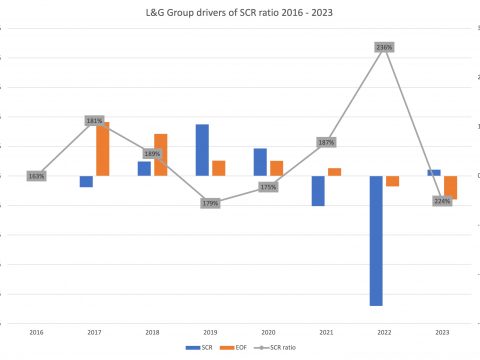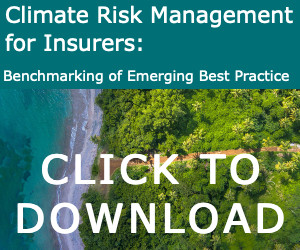
The multitude of climate related initiatives that have been developed in the past few years requires close coordination to ensure an effective response to the climate crisis. Sonia Boulad, member of the secretariat, Financial Stability Board, surveys the plans and progress of the international efforts.
Climate risk and the global financial system

Climate-related events are becoming ever more common, which is leading to a growing focus on potential risks it could pose to financial stability.
A manifestation of physical risks as well as a disorderly transition to a low-carbon economy could have destabilising effects on the financial system, including through a rise in risk premia and falling asset prices in the relatively short term. Climate-related risks may also be amplified by the financial system, across borders and across sectors.
The increased frequency and intensity of extreme weather and climate-related events, and the intense debate about current and future energy policies in many jurisdictions, highlight that this is not just a long-term issue or tail event. It also emphasises the importance of continued progress to embed effective risk management practices and strengthen financial system resilience to the risks posed by climate change.
What role for the FSB?
Given its global importance and the need for an urgent response, climate change is a key priority for the Financial Stability Board (FSB) and forms an integral part of our work programme. The large number of international initiatives by standard-setting bodies, other international organisations and private-sector bodies, and the interconnections between climate-related risks faced by different participants in the financial system, reinforce the case for coordinated action.
The FSB’s diverse membership, including financial authorities from individual jurisdictions, standard-setting bodies and international organisations – and the Network for Greening the Financial System (NGFS) as a regular participant in FSB meetings – makes it well placed to coordinate this work.
The FSB Climate Roadmap, a powerful coordination tool
In July 2021, the FSB published its Roadmap for addressing Climate-related Financial Risks, which supports international coordination by promoting relevant initiatives at standard-setting bodies, the NGFS and other international organisations.

Furthermore, it has also been endorsed by the G20, and provides input to the broader international agenda within the G20, G7 and UN.
The Roadmap also sets out steps to be taken by the FSB, standard-setting bodies and other international organisations over a multi-year period.
The FSB published its first annual Progress Report in July this year, which takes stock of progress on the actions coordinated through the Roadmap, outlines areas for further attention, and provides updates to the actions and timelines. The report finds that encouraging progress has been made across four interrelated policy areas of the Roadmap.
Block 1 – Firm-level disclosures
Firm-level disclosures are the basis for the pricing and management of climate-related financial risks at the level of individual entities and market participants.
A key milestone has been the publication by the newly established International Sustainability Standards Board (ISSB) of two exposure drafts, on climate and general sustainability-related disclosure standards. The timely issuance by the ISSB of a final global baseline climate reporting standard ready for market adoption is critical. There is also a growing recognition of the importance of global assurance standards to drive reliability of disclosures.
Block 2 – Data
Consistent metrics and disclosures provide the raw material for the diagnosis of climate-related vulnerabilities.
Work has continued on improving the availability and cross-border comparability of climate related data more broadly. One notable priority is to further coordinate the establishment of common metrics for financial risks, including forward-looking metrics.
Moving ahead, it is important to establish data repositories that provide open access to data in a consistent form.
Block 3 – Vulnerabilities analysis
Vulnerability analysis provides the basis for the design and application of regulatory and supervisory frameworks and tools.
Work is progressing on ongoing monitoring using the tools currently available, development of conceptual frameworks, and further development of scenario analysis.
Block 4 – Regulatory and supervisory practices and tools
Creating and developing a toolset that allows authorities to address identified climate-related risks to financial stability in an effective manner.
A number of initiatives by standard-setters and international organisations have been completed or are well underway, including supervisory risk management expectations and supervisory guidance covering the banking, insurance and asset management sectors. Authorities should continue to embed the supervision of climate-related risks into overall supervisory frameworks.
A need to deepen the understanding of climate-related financial risks
Notwithstanding this progress, the understanding of climate-related financial risks and the policy approaches needed to address them remain at an early stage. The FSB Roadmap will continue to support strong progress in the coming years, acting as a mechanism for coordination and for maintaining a high level of ambition among authorities to tackle this urgent global issue.

—
The author is a member of the secretariat of the Financial Stability Board. The views expressed are the author’s own.
Sonia Boulad participated in an expert panel discussion on insurance climate disclosures. Insurance Climate Disclosures – present state and future outlook, is a collaboration between Solvency II Wire, Royal London Asset Management and Slaughter and May, bringing together senior regulators and industry figures to discuss the challenges of ESG reporting in the insurance industry.
Insurance Climate Disclosures: present state and future outlook, was held at the offices of Slaughter and May in London, on 14 June 2022.
Articles in the series
- Insurance Climate Disclosures: present state and future outlook, an introduction
- Climate-related risks – a coordinated response to a global challenge, FSB
- Climate change scenario analysis in the ORSA – a key tool for (re)insurers, EIOPA
- Better not more ESG information, FRC
- Managing climate policy uncertainty, Just Group
- Climate and sustainability data quality – an insurance perspective, Marsh
- Shining a light on the Path to Sustainability, RLAM
- Position paper: Conflicts of climate disclosure
- Media Release: Insurance Climate Disclosures – present state and future outlook
Get the next article directly to your inbox, sign up to the Solvency II Wire mailing list.








